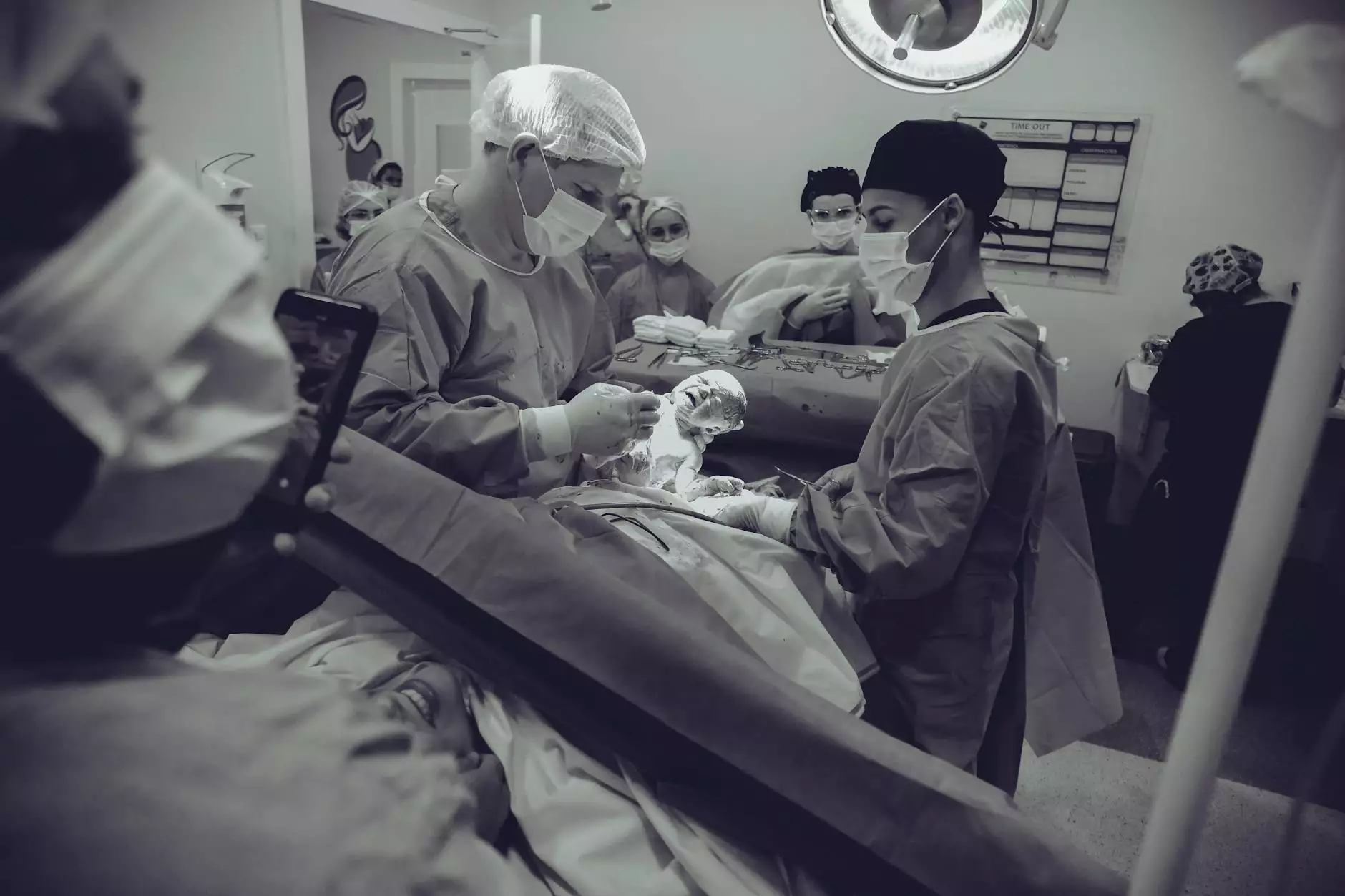Sleeve Gastrectomy Procedure: Transforming Lives Through Weight Loss Surgery

The sleeve gastrectomy procedure has emerged as a revolutionary approach to combating obesity and its associated health complications. This surgical method not only aids in significant weight loss but also improves overall health, enabling individuals to lead more active and fulfilling lives. In this comprehensive article, we will explore the intricacies of the sleeve gastrectomy procedure, including how it works, the benefits it offers, the potential risks, and essential post-operative care tips.
Understanding the Sleeve Gastrectomy Procedure
The sleeve gastrectomy procedure, often referred to simply as "sleeve surgery," involves the surgical removal of a large portion of the stomach, resulting in a tubular, sleeve-like structure that resembles a banana. This procedure is typically performed laparoscopically, which minimizes recovery time and scarring.
How the Sleeve Gastrectomy Procedure Works
During the sleeve gastrectomy procedure, approximately 75-80% of the stomach is removed. This restriction significantly reduces the stomach's capacity and alters hormone levels that regulate hunger and satiety. The surgery results in:
- Reduced Stomach Size: The newly formed stomach can hold significantly less food, leading to decreased calorie intake.
- Hormonal Changes: Removal of the stomach portion decreases the production of ghrelin, known as the “hunger hormone,” which helps diminish appetite.
- Improved Metabolism: Weight loss can lead to improved insulin sensitivity, thus benefiting those with type 2 diabetes.
Benefits of the Sleeve Gastrectomy Procedure
The sleeve gastrectomy procedure offers a myriad of benefits that extend beyond losing weight. Here are some key advantages:
- Significant Weight Loss: Patients typically lose 50-70% of their excess weight within the first 18 months post-surgery.
- Improved Quality of Life: Weight loss can enhance mobility, increase energy levels, and improve psychological well-being.
- Reduction of Obesity-Related Conditions: Many patients experience remission of obesity-related conditions such as type 2 diabetes, sleep apnea, and hypertension.
- Minimal Scarring: The laparoscopic approach of the procedure means smaller incisions and less visible scarring.
- Long-Term Success: Many patients maintain their weight loss for years, especially when coupled with lifestyle changes.
Who is a Candidate for Sleeve Gastrectomy?
This procedure is generally recommended for individuals who:
- Are classified as obese, with a Body Mass Index (BMI) of 40 or higher.
- Have a BMI of 35 or higher accompanied by obesity-related health issues.
- Have failed to lose weight through diet and exercise alone.
- Are committed to making lifestyle changes post-surgery.
However, not everyone is a suitable candidate. A thorough evaluation by medical professionals is critical to ensure safety and efficacy.
Preparation for the Sleeve Gastrectomy Procedure
Preparing for the sleeve gastrectomy procedure involves several steps, including:
- Medical Evaluation: A comprehensive medical evaluation includes discussing your medical history, undergoing blood tests, and possibly other imaging tests.
- Psychological Assessment: It's essential to evaluate mental readiness and resilience as the procedure can be mentally and emotionally challenging.
- Preoperative Diet: Following a prescribed preoperative diet, often a low-calorie liquid diet, helps reduce the size of the liver and prepares the body for surgery.
The Sleeve Gastrectomy Surgical Process
The surgical process typically follows these steps:
- Anesthesia: The procedure is performed under general anesthesia, ensuring the patient is completely unconscious and pain-free.
- Laparoscopic Procedure: Surgeons utilize small incisions to insert a camera and specialized instruments.
- Stomach Resection: A significant portion of the stomach is removed, and the remaining stomach is formed into a sleeve.
- Closing the Incisions: The incisions are closed with sutures or surgical staples.
Risks and Considerations
While the sleeve gastrectomy procedure is generally safe, it’s essential to acknowledge potential risks, including:
- Bleeding: In some cases, there may be bleeding from the surgical site.
- Infection: Like any surgical procedure, there's a risk of infection post-surgery.
- Stricture: The sleeve can become narrowed (stricture), causing obstruction.
- Malnutrition: Patients may experience nutritional deficiencies if dietary guidelines aren't followed post-surgery.
- Reflux: Some patients may experience gastroesophageal reflux disease (GERD) after the surgery.
Post-Operative Care and Lifestyle Changes
The journey does not end after the sleeve gastrectomy procedure; rather, it is just beginning. Patients must commit to lifestyle changes and follow specific post-operative care guidelines:
- Dietary Modifications: Following a recommended diet progression from liquids to soft foods and eventually to regular foods is essential.
- Regular Follow-Ups: Scheduled follow-ups with the healthcare team help monitor progress and address any concerns.
- Exercise: Incorporating regular physical activity promotes weight loss and overall health.
- Support Groups: Participating in support groups can provide encouragement and share experiences with others on the same journey.
Conclusion: A Path to a Healthier Future
The sleeve gastrectomy procedure is not merely a weight loss solution; it is a profound lifestyle transformation that can lead to enhanced health and well-being. By understanding the procedure, the benefits it brings, the importance of preparation and recovery, and the lifestyle changes required, individuals considering this surgery can embark on their journey equipped with knowledge and hope. If you or someone you know is struggling with obesity, consulting with qualified medical professionals can be the first step towards achieving a healthier future.
For more information on the sleeve gastrectomy procedure and to explore your options, visit thewellcome.com and connect with our team of experienced health professionals today.









